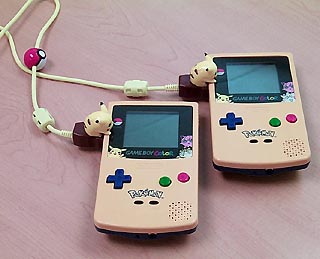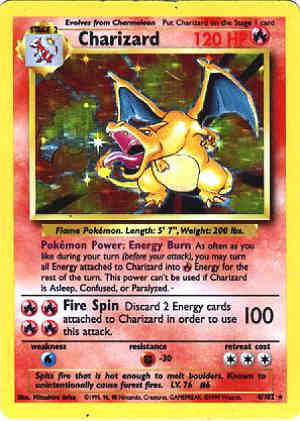The establishing of a community and its vernacular takes time. Nintendo did this in America within a year or two of Pokemon’s release. Nintendo does not own the Dragon Quest name – that lies with Square-Enix, of course. Dragon Quest wasn’t that successful, simply due to Final Fantasy coming out first; it already lost its chance to impact the Western world in the same way. In America, Nintendo published the latest Dragon Quest in the States out of pocket, but they have already dominated the handheld cultural space through Pokemon much as Dragon Quest influenced Japan (though, obviously, not to the same degree).
If anyone remember 1998, tiny children were literally frothing at the mouth for Pokemon. Heck, I know I was; as a subscriber of Nintendo’s propaganda rag Nintendo Power (RIP), Nintendo hyped the game to unbelievable proportions to all who would listen, converting the faithful and even those who didn’t have a Game Boy. Granted, the Game Boy was almost a decade old at this point; a 50 million dollar advertising budget does wonders, and so I was just as excited about it. When it finally came out, I sped through the experience, got all the Pokemon in Blue that I could find, and then found out…I couldn’t catch’em all.
Having been smart enough to convert my friends to the newest fad, I had unintentionally witnessed my Christian school becoming a haven for Pokemaniacs. Just about everyone had a copy of the game and bought a Game Boy through my evangelizing, and the craze encompassed a wide range of students. People were whipping out Game Boys for trades and battles, Pokemon cards were rampant, and lots and lots of children lost interest with schoolwork; rather, they wanted to see whether Mewtwo really WAS the strongest Pokemon (also, I lost my rare Charizard card at school and still don’t know where it is. If you do…message me on Facebook. I will find you, thief.).
Granted, I suppose we were all asking for it, but my school banned Pokemon use on religious grounds: something about devil worship, magic, or the like. My parents weren’t too concerned about such things – if you can believe it, I played Mortal Kombat when it first came out with little to no impact and most subsequent games in that series – but most Christians were and are scared of pop culture. In retrospect, I can see why they did this: if kids weren’t paying attention, they were wasting people’s money (in a private school) and that’s not something you want! They learned they lesson and subsequently banned Digimon and Yu-Gi-Oh and every other monster battling/card trading related fad.
Still, we continued trading Pokemon – just in secret. The desire for a Machamp, Alakazam, Golem, Poliwhirl, and Gengar remained strong. Due to having two types of games, trading was necessary if you wanted those few Pokemon you missed. For me, I wanted an Electabuzz and a Scyther, two Pokemon I couldn’t capture. The underground Pokemon trading ring continued even under the watchful eye of school authorities. Who knows how we did it, but by golly, I never got caught. In fact, punishment came from burying a Coke can in the sand somewhere rather than Pokemon trading. I did that, surely; not sure why it warranted any kind of retaliation, but who knows.

You might think this a trite childhood memory, but these little digital creatures brought kids together. Sure, we all dismiss Pokemon nowadays as “that RPG with the monsters”, or the obsession of children everywhere, but there’s good reason why it succeeds. How many friends did I meet at school just by a shared love of Pokemon? Who didn’t like discussing it with like-minded individuals? We all had our different opinions on the best teams, the best setups for abilities, how to eliminate the Elite Four, grinding to level one hundred, and just about every topic under the Kanto sun. We knew a lot, and we felt like experts, obtaining an extreme knowledge base on something adults simply didn’t understand.
We were learning about the Bible and Christianity in our education, but these were assumed rules of the game. Think about it like this: if a religious background was all you ever knew, and you assumed everyone thought the same way, you wouldn’t talk about it that much, would you? A kid isn’t much interested in whether or not God exists if his parents tells him that God exists. Kids want to play with stuff – Pokemon was the perfect complement. It empowers children to do some of their own thinking, build their own team, and do their own hard work to succeed – principles that, more often than not, work in real life. Kids pool their resources to learn about Pokemon, and in the process learn much more than that: they create a miniature society with occult (as in hidden) knowledge. We do our own seperate research and gather together again to talk about things.
How do you get Mew, for example? Supposedly you needed to go to some exclusive Nintendo-sponsored event to get him, but glitches in the game were found that would enable you to catch him. Most of us didn’t even know what Mew looked like, other than from Pokemon Snap (horrible waste of money, even when I paid half for it). To say I eventually caught one with a Gameshark didn’t lessen the accomplishment; hey, I had a Pokemon no one else had. Since Psychic types were so powerful and had no counter, could you blame me? Just seeing one in the wild sent children into seizures, not unlike the cartoon in Japan – zing!

As a child, you’re not fascinated by a game simply as an extracurricular activity; all your waking thought goes into plumbing the game’s depths and finding new stuff, even when others tell you there’s nothing to be found. The Internet, in its own way, limits that sense of discovery – I can just look up what I need to know and never check again – but the flow of rumors, misinformation, and hidden secrets kept us playing Pokemon well into the next few years. Did I ever “catch’em all?” To be blunt: no. But I had a great time participating in this weird shared event with the rest of my peers.
Like in academia, that pool of knowledge, rumor, and speculation (plus theorizing) creates its own communities with their own opinions. A shared love of a subject brings people together. Rather than just talk about one’s game, they can share their gaming with others in various forms, both inside and outside of the game. In that respect, Pokemon fulfills the social aspect that Dragon Quest cannot hope to integrate into their franchise at this juncture. Pokemon creates a real community of gamers; that was rare in the pre-Internet age. Even now, Pokemon still emphasizes meeting real people face-to-face over a simply Internet trade.
Blizzard certainly beat Nintendo to the punch with Pet Battles in World of WarCraft – then again, Nintendo hasn’t expressed any desire to make an MMO, nor do they seem to want anything close to it. They’re content with the handheld experience because they understand the power of Pokemon. Now that we have several generations of people playing the game, adults and children, they can share this common knowledge together. While it’s impossible to recreate the same environment for adults in this vein, that doesn’t mean they can’t get a hint of the enthusiasm that a kid brings to the table. There’s plenty of adults playing Pokemon and talking about it over the Internet, which has made new opportunities for that community to grow.
Continue to Part 4

